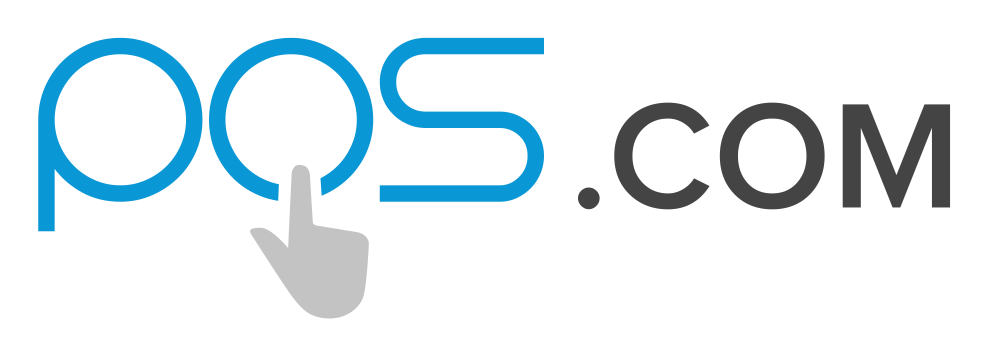Cloud vs Local POS Systems, Advantages and Disadvantages of each
A Point of Sale (POS) system is a critical tool for businesses, as it is how all sales and other transactions are processed and stored. The data that is collected can reside in a centralized server that is connected to each station locally, or can be completely in the cloud.
Cloud-based and Local POS solutions have a number of advantages and disadvantages, and depending on your business' needs one may be a better option than the other.
Point of Sale database?
A POS system consists of several components of both hardware and software which work in tandem to allow the cashier to be able to complete transactions for the customer at the counter. The hardware portion includes the cash register, the cash drawer, credit card terminal, receipt printer, barcode scanner, and more. The other part of the system is the software that makes the whole system work.
The POS software includes a user interface that is displayed on the screen and a database that resides on a local server and usually transmitted to a more centralized location. This is referred to as a traditional (or legacy) POS system and has been around since the first personal computers were first introduced more than 30 years ago.
Advancements in technology and the introduction of the cloud-based storage has brought a whole new age to the retail sales industry. Today, a business now has the choice of whether they want to have their POS system locally established or have it housed online. The cloud-based POS solution consists of a website (or an app) and user interface that collects the transaction information and all of the data is stored in the cloud.
Differences between traditional POS Systems and Cloud-based POS
One of the biggest difference between the two is that in a traditional POS system, each location has a back office server that the cash registers are connected to. This back office server is connected to the company's data center and the main POS database. The data that is collected is then transferred to the business software for processing by the accounting software and whatever other processing thereafter.
With a cloud-based system, nothing may be physically loaded onto any of the hardware that is used by the business. They are given an account on the software provider's website or app and it is there that everything is set up. The transactions are stored and all of the processing is handled via the cloud system.
What are the advantages of using a traditional POS System?
Ever since they were first introduced to the business world, the traditional POS System revolutionized how the retail sales industry operated. Being able to instantly process a sales transaction while the customer waited. The following is a short list of the advantages of using a traditional POS System:
The data is under your control.
No internet connection needed.
Performance may be better in most cases.
Less chance of data breach with proper security measures in place.
Better for the privacy-conscious if system is kept off the internet.
Since all individual aspects of the system is housed locally, you have more control over your data, hardware, and environment. It is a viable option for single location retail stores or restaurants.
What are the disadvantages of using a traditional POS System?
While there many good reasons why a business that operates a retail business or a restaurant to use a traditional POS System, there are some downside and they can be more than just minor inconveniences. Here are a few negatives that should be considered when using a traditional POS System:
Custom software/hardware upgrades can be costly.
May require additional hardware to maintain inventory control.
Hardware issues can severely hamper your operation.
Proper security measures must be set for maximum protection.
A backup plan must be put in place in case of any hard drive failures.
May require an IT team to manage the infrastructure.
May not be ideal if you have multiple locations that need to have synchronized data.
It really is difficult to overlook some of the disadvantages to using a traditional POS System these days, especially due to the advantages of the cloud-based solutions. With freedom of control comes additional security measures that must be put in place for a seamless, and optimal operation.
What are the advantages of using a Cloud-based POS System?
The latest technology that brought us the cloud has also made it very popular to offer many different business services to take advantage of the Internet and Cloud storage solutions. By setting up a cloud-based POS System you and your business are able to reap these benefits:
Your data can be accessed anywhere, and anytime.
Instant updates and synchronization across multiple locations that make for faster and more accurate business decisions.
Less powerful hardware can be used since all of the processing is done on the cloud, in turn saving money on IT costs.
Can make use of additional devices such as tablets and mobile phones which can work together seamlessly.
Easier to scale up when expanding your business.
Multi-channel retail is seamless due to data being more readily available.
Streamlined fulfillment and logistics processes.
Many established cloud-based POS solution providers have security measures in place to prevent data breaches.
Safer from accidents (fire, flooding, thievery) and natural disasters since the data is stored in a secure data-center location.
Today's mobile technology continues to make the cloud-based solution much more viable for many businesses where space and logistics may be of concern. Also, some cloud-based POS solutions have additional modules such as e-commerce that are already integrated within.
What are the disadvantages of using a Cloud-based POS System?
With anything related to technology, there is no perfect solution that meets every single needs of a business. With the convenience of the internet comes the pitfalls as well. While it is viable for many, here are a few disadvantages that you may need to consider:
Requires constant internet connectivity. (Some providers offer offline access)
Performance varies depending on your internet connection.
You have to pay a monthly recurring fee to use the service.
Since all of your data is up in the cloud, there is a possibility for data breaches.
Not all cloud-based point of sale solutions are equal. Security, reliability, and data redundancy must be thoroughly considered.
The internet is open, and with that comes the possibility of security breaches. This is even more critical as a POS system may contain sensitive customer data, and private company information. No system is ever fail-safe, and data security & privacy is a never ending concern. Just as much as someone can physically come into your business location and steal the hardware containing sensitive data, it is possible for someone to steal it via the internet.
Deciding which is right for your business
Now that you have some idea of what the major differences between the two different types POS systems are, you may have more questions than before. So exactly which is better? That's a question without an answer as it depends on your specific business requirements. While each has its pros and cons, pick one that offers benefits that outweigh the negatives.
Looking for a POS system for your business? We have put many of the top point of sale solutions to the test. Stay tuned for our extensive review of the best POS systems for 2018.
We help savvy retailers like you grow your business
Get in touch with us.
Get in touch with a specialist
or call us toll-free at
+1 888-860-8988


